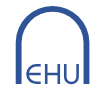Introduction
European Humanities University is a private, non-profit liberal arts university located in Vilnius, Lithuania. It focuses on education and research in the humanities and social sciences, and is committed to cultivating students' critical thinking, open-mindedness and personal responsibility, providing students with high-quality education to enable them to contribute to their lives and the civil society in which they live, and promoting Belarus' integration into the European and global society.
Overview
Number of students: In the 2020/2021 academic year, the university has about 680 students, most of whom are Belarusian students. About two-thirds of the students study through online courses and live in Belarus, and about one-third of the students take classes on the Vilnius campus.
Number of faculty and staff: No clear data has been found yet, but judging from the size of the school and the courses offered, it should have a considerable number of highly professional faculty and staff to meet the needs of teaching and research.
History and establishment time
The university was founded in Minsk, Belarus in 1992. At that time, it consisted of eight colleges and provided education in 13 majors, including humanities, foreign languages, classical languages and information technology. In 2004, due to pressure from the Belarusian authorities, the school's educational license was revoked, and it was forced to terminate its activities in Belarus and move to Vilnius, Lithuania. In 2005, with the support of the Lithuanian government, the European Union, the Nordic Council of Ministers, and other European countries and international foundations, the school resumed teaching activities in Vilnius and obtained the official status of a Lithuanian university in March 2006.
School Strength
Faculty: The school has a team of highly qualified teachers from different countries and regions. They have rich teaching and research experience in the humanities and social sciences and can provide students with professional guidance and cutting-edge academic knowledge. In addition, the school often invites internationally renowned scholars and experts to give lectures and exchanges to broaden students' academic horizons.
Teaching Resources: The school library has a rich collection of books, journals and electronic resources in the fields of humanities and social sciences, which provides strong support for students' learning and research. At the same time, the school is also equipped with advanced teaching facilities, such as multimedia classrooms, computer laboratories, etc., to meet the needs of teaching and practice. In addition, the school has established cooperative relations with many universities and research institutions in Europe and the world, providing students with broad opportunities for communication and cooperation.
International Exchange: As a university with an international vision, the school actively carries out international exchange and cooperation projects, and has established cooperative relations with many universities in Europe, the United States, Canada and other countries and regions, and carries out student exchanges, teacher visits, joint research and other activities, providing students with a broad international exchange platform, broadening students' international vision and enhancing students' international competitiveness.
Institutional Nature
Private non-profit liberal arts university.
Educational Philosophy
Focus on cultivating students' critical thinking, open spirit and personal responsibility, emphasizing the cultivation of students' independent learning and innovation ability, encouraging students to actively participate in social and cultural activities, improving students' comprehensive quality and social responsibility, so that students can become citizens with global vision and social responsibility, and contribute to the development and progress of society.
Key laboratories and disciplines
Key laboratories: None found The school has clear key laboratories, but the school has invested a lot of resources in research and teaching in the humanities and social sciences, providing students and teachers with a good research environment and conditions.
Key disciplines: The school's key disciplines include philosophy, political science, economics, sociology, law, psychology, cultural studies, art history and other disciplines in the humanities and social sciences. These disciplines have achieved remarkable results in teaching and research, providing students with systematic and in-depth professional education, enabling them to have a solid professional foundation and a high academic level in their respective fields.
Department Settings
The school does not clearly divide the departments, and mainly has undergraduate and master's degree programs in the following professional directions: art, business, communication, cultural heritage, visual and cultural studies, design, law, philosophy, politics, economics, psychology, public policy, sociology, etc.
Ranking
The school ranks second among private universities in Lithuania.
Expenses
Tuition fees: Tuition fees for different majors vary. The annual tuition fee for undergraduates is about 3,000-4,000 euros, and the annual tuition fee for masters is about 4,000-5,000 euros. For specific tuition fees, please refer to the latest information on the school's official website.
Living expenses: Including accommodation, food, transportation, etc., it costs about 500-700 euros per month. The specific cost varies depending on personal lifestyle and consumption habits.
Campus
Campus location: The school's Vilnius campus is located in a former Augustinian monastery in the old town of Vilnius, which is listed on the UNESCO World Heritage List. The surrounding environment is beautiful and the cultural atmosphere is strong, providing students with a good learning and living environment.
Campus facilities: The campus is fully equipped with teaching buildings, libraries, student dormitories, canteens and other buildings. The student dormitory provides triple accommodation with a balcony and a separate bathroom. There is a kitchen on each floor and Internet access in the room. The school's library has a rich collection of books, journals and electronic resources in the humanities and social sciences, which provides strong support for students' learning and research.
-
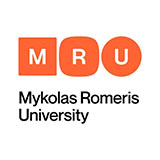
Mykolas Romeris University
-

LCC International University
-
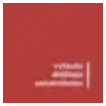
Vytautas Magnus University
-
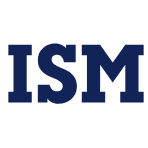
ISM University of Management and Economics
-
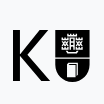
Klaipeda University
-
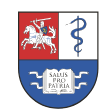
Lithuanian University of Health Sciences
-
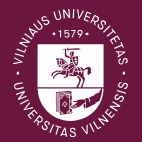
Vilnius University
-

Vilnius Gediminas Technical University
-
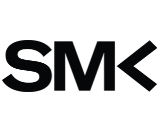
SMK College of Applied Sciences
-
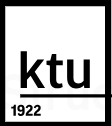
Kaunas University of Technology
-

Mesoamerican University
-

Istmo University
-

Mariano Galvez University of Guatemala
-

Regional University of Guatemala
-

Galileo University
-

Francisco Marroquín University
-

Rafael Landívar University
-

University of the Valley of Guatemala
-

University of San Carlos of Guatemala
-

Technological Institute of Tlaxcala Plateau
-

Golfo University
-

Technological University of South Sonora
-

Technological University of Huejotzingo
-

Tizimín Institute of Technology
-

Chilpancingo Institute of Technology

